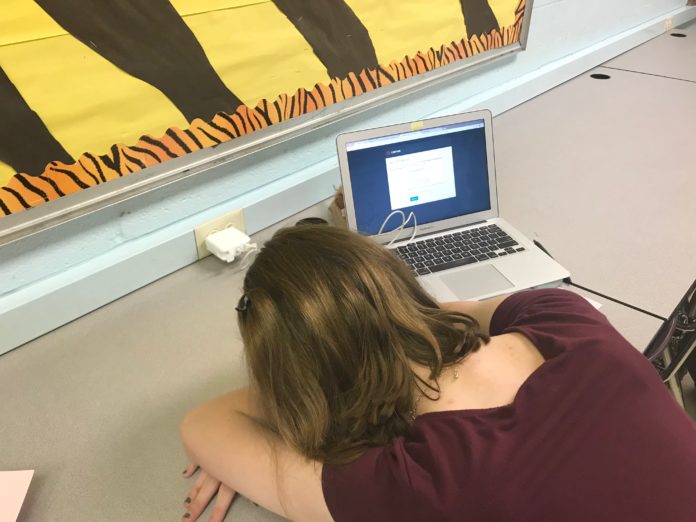My mother graduated top of her high school class, received a full ride to Georgetown and then was a Rhodes Scholar at Oxford University. I say this not to “flex” on my mother’s behalf. I say this because, in late April, she stumbled groggily into my room at one o’clock in the morning and told me that I would never be this academically stressed again in my life. Apparently, my junior year of high school is more brutal than a top-tier graduate program.
I thought I was prepared for this school year, but none of my friends’ warnings truly equipped me for the late nights, endless homework and the constant feeling that I am not doing enough. Even on a rare day when I arrive home right after school, I can be up well past midnight doing homework. Like many of my classmates, I can’t remember the last time I was not tired or not reliant on caffeine.
The Brown Center Report on American Education found, in 2014, that students today spend more time on homework than their counterparts of earlier decades, and this trend is only continuing to grow. I set out to get to the root of my late nights and full planner. Was I actually being given more homework? Was technology having a negative effect? To solve the problem, I tracked my study habits for a weekend.
[Disclaimer: this weekend did not represent my homework load for the entire year. As we’ve entered into the final days before AP exams, most of my classes have cooled it on the homework. As much homework as I was doing here, it paled in comparison to the long nights I was pulling in February and March.]
Still, the nature of homework and final exams created an incredibly exasperating time. “This time of year is especially stressful with exams, scrambling to complete academic tasks, and, of course, the specter of graduation itself,” Chapel Hill High School Counselor Ryan McGraw said.
Knowing this, here are my weekend statistics:
- Five hours in the SAT
- Three hours with a Latin practice exam
- Two hours running errands
- Five hours hanging out with friends
- Two hours exercising
- Eight hours doing homework
The most important statistic: the eight hours of homework. Let me again stress that there have been weekends this year where this number has hit 12 or higher. Due to the SAT, I also didn’t have any volunteering this weekend, which meant my free time was also greater than normal.
I did my homework in smaller chunks, and, when I was actually working, I rarely looked at my phone. Stripped away into numbers and spreadsheets, the ugly truth remained: there was little I could do to reduce the amount of time I was spending on homework.
Living like this has taken a physical toll on my body. The American Academy of Pediatrics recommends that adolescents ages 12 to 18 cap daily caffeine at 100 milligrams, which equals about one cup of coffee. My friends and I easily go over this. Studies also show that 30 minutes of exercise per day correlates to being happier, healthier and more productive. Weekends, I’m able to pull this off. But when it’s 11:30 p.m. on a Monday and I’ve been working consistently on homework since 7:30 p.m., when given the choice between sleep, Latin homework, and exercise, exercise is always going to come out last.
I also average about six hours of sleep. Many of my friends average less. Studies show that anything less than eight hours a day has a detrimental effect on teenagers. When the sleep deprivation is coupled with the lack of exercise, reduced social interaction, caffeine addiction and immense stress, junior year is harming my body just as much as my mind.












